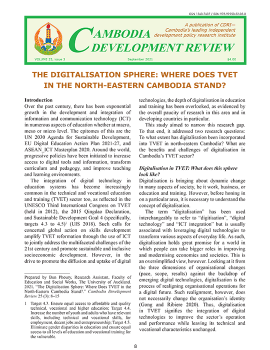Centre for Educational Research and Innovation
CERI is dedicated to conducting high-quality research with a primary focus on education and training in Cambodia and the region to generate knowledge from qualitative and quantitative analyses rooted in data and evidence. Utilising the knowledge we generate, the centre actively facilitates policy discussions between both national and international researchers, policymakers, and practitioners through a series of workshops and policy dialogues held at both national and regional levels. In pursuit of our objectives, CERI maintain close collaborations with government agencies, educational and training institutions, civil society organizations (CSOs), and other pertinent stakeholders. This collective effort is to foster innovation and implement effective solutions in education and training. CERI's core activities revolve around research, capacity development, and policy engagement. Currently, our key areas of focus for research encompass educational technology, skills development, the advancement of quality education, and the promotion of inclusive education, spanning from K12 to higher education.
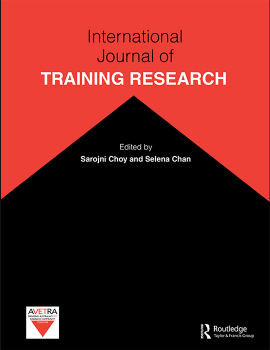
Are Higher Ability Garment Workers More Likely to Participate in Industrial Skills Training in Cambodia?
Understanding what determines a worker’s passion for skills training has important policy implications, particularly in the current context of the fourth industrial revolution, in which knowledge is deemed obsolete within several years. The purpose of this study is to answer a specific question: are higher-ability garment workers more likely to engage in industrial skills training? To do so, we us...
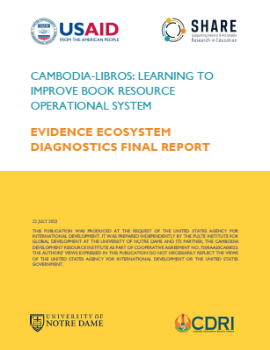
Cambodia-LIBROS: Learning to Improve Book Resource Operation System: Evidence Ecosystem Diagnostics Final Report
This Systems Thinking workshop involved the implementation of eight main activities: issue prioritization, issue mapping systemigram, strategy prioritization, evidence prioritization, stakeholder and idealized evidence network mapping, evidence ecosystem relationship analysis, mapping critical success factors, and research contextualization. A common understanding of what “evidence” for the Ca...
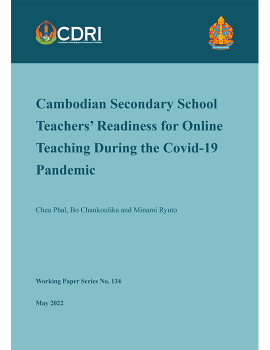
Cambodian Secondary School Teachers’ Readiness for Online Teaching During the Covid-19 Pandemic
The Covid-19 pandemic locked students all around the world out of school and caused unprecedented educational disruptions for more than two years. Like other countries, Cambodia switched from the traditional physical classrooms to online and distance learning during school closures. Cambodian schools were able to reopen their doors briefly at the end of 2020 after the first nationwide school closu...
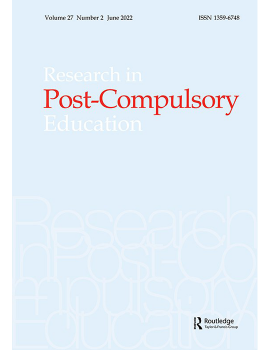
Blurred Identities: The Hybridisation of Post-secondary Education and Training in Cambodia
This study intends to identify existing permeability pathways between post-secondary education and training in Cambodia and to highlight hindrances that hamper the smooth permeability between the two systems. Adopting a hybrid process, the study combines both inductive and deductive thematic analysis approaches in coding transcribed interviews at 15 sampled training institutions and universities....
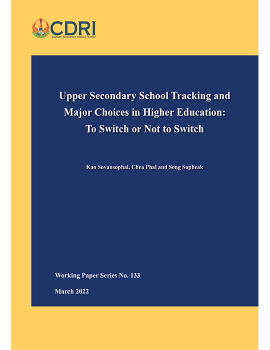
Upper Secondary School Tracking and Major Choices in Higher Education: To Switch or Not to Switch
Strengthening the quality of education, science and technology education is one of the four strategic rectangles of Rectangular Strategy Phase IV and at the heart of Cambodia’s ambition to achieve higher-middle-income status by 2030 and high-income status by 2050. To that end, increasing attention has been paid to improving both the quantity and quality of science education from secondary school t...
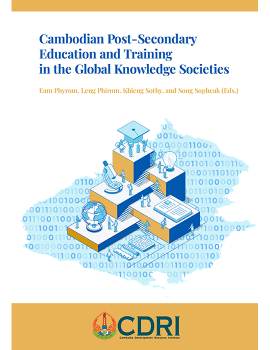
Cambodian Post-Secondary Education and Training in the Global Knowledge Societies
The emergence of global knowledge societies makes it necessary for Cambodian Post-Secondary Education and Training (PSET) system to: accelerate its knowledge-creation function, leading to academic excellence and intellectual prowess; cultivate vocational value, professional quality, and workplace learning habits in its students; build a robust STEM education and pipeline; and enable lifelong...
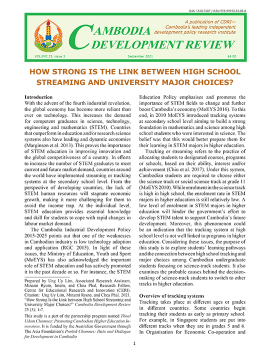
How Strong Is the Link between High School Streaming and University Major Choices?
The purposes of this study are to explore learning pathways when students transit from high school to higher education among Cambodian students and examine the probable causes behind their decision to switch academic majors. The study found that about half of surveyed students switched their academic majors. Virtually all the switchers are science-track female students. Personal interests and labo...
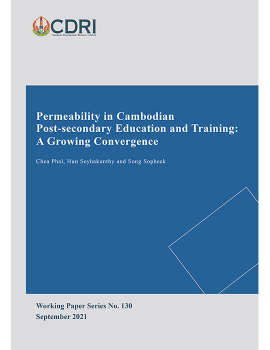
Permeability in Cambodian Post-secondary Education and Training: A Growing Convergence
The distinction between vocational training and academic education can be traced back to different institutional structures in medieval Europe. However, owing to an increasing need for higher-level skills to respond to market demand, countries have resolved to establish flexible pathways for students on both tracks or systems to move or transfer across to each other. Permeability in education and...
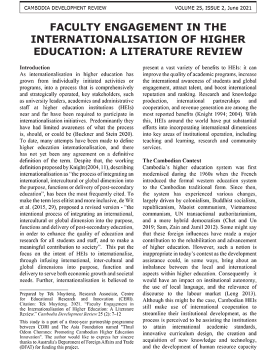
Faculty Engagement in the Internationalisation of Higher Education: A Literature Review
This review paper aims to examine the characteristics of faculty engagement in the internationalisation of higher education and the factors influencing the participation of faculty members in such a process. The review finds that faculty members have so far engaged in international activities in the form of international teaching and research, joint research publications and reviews, membership of...












